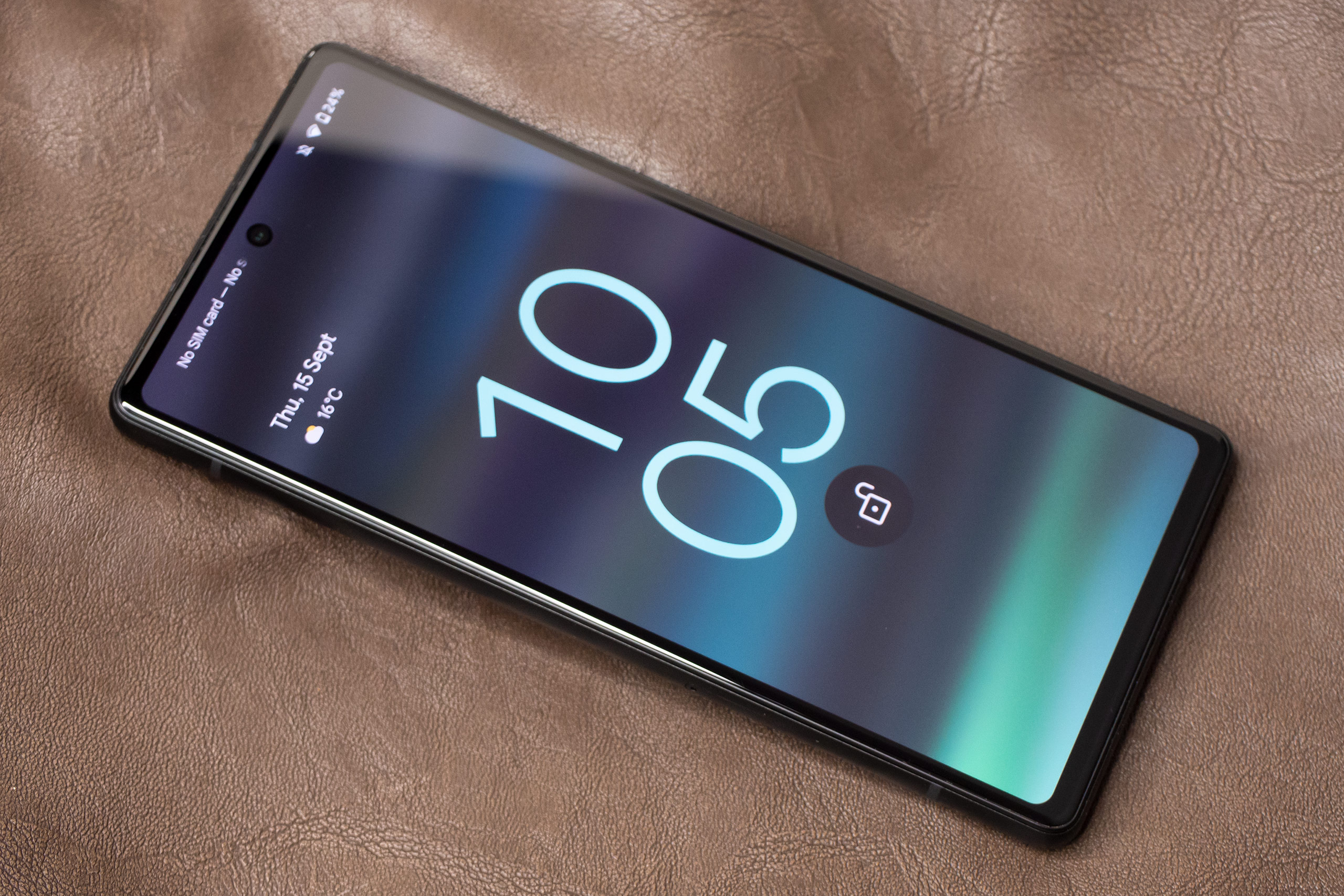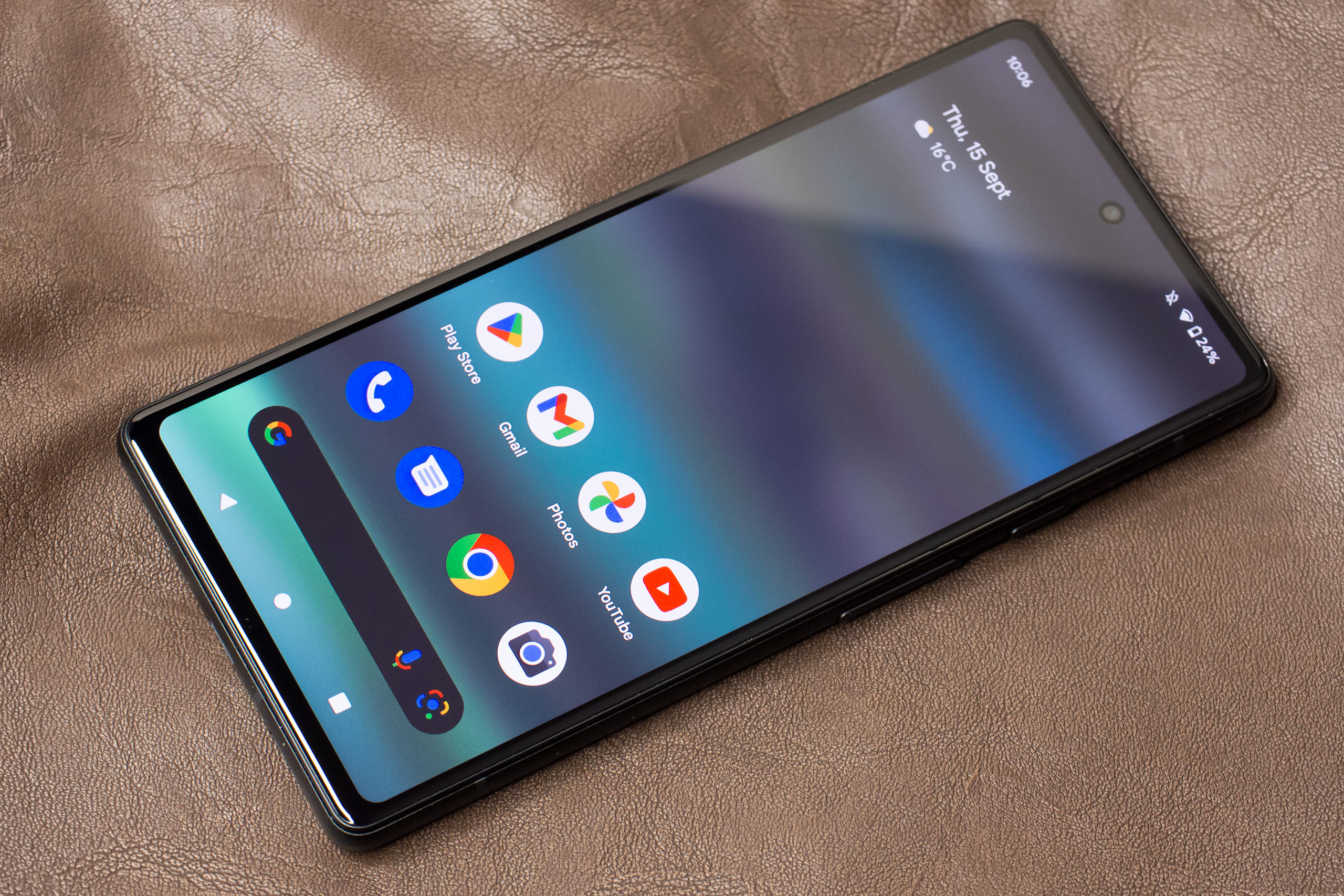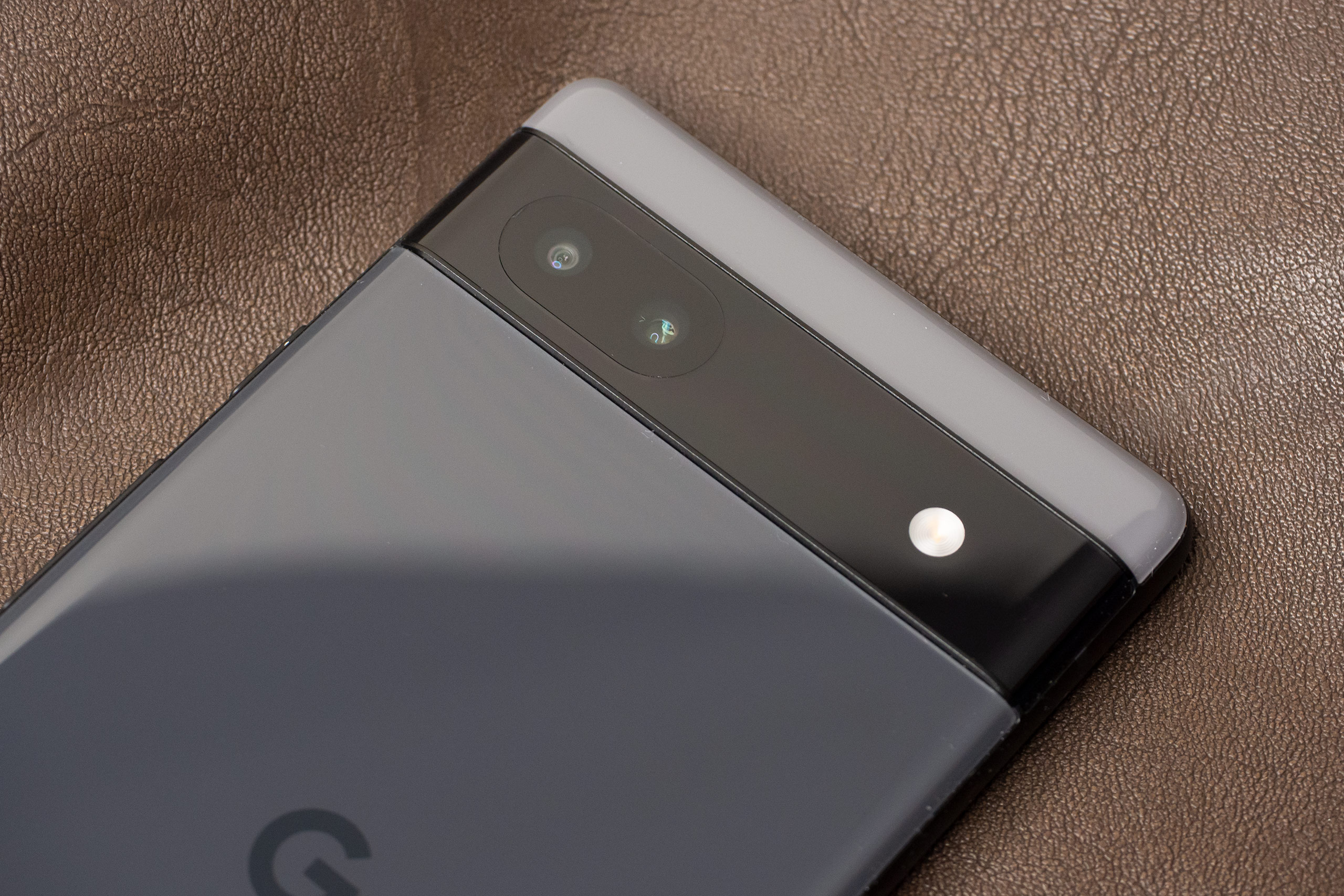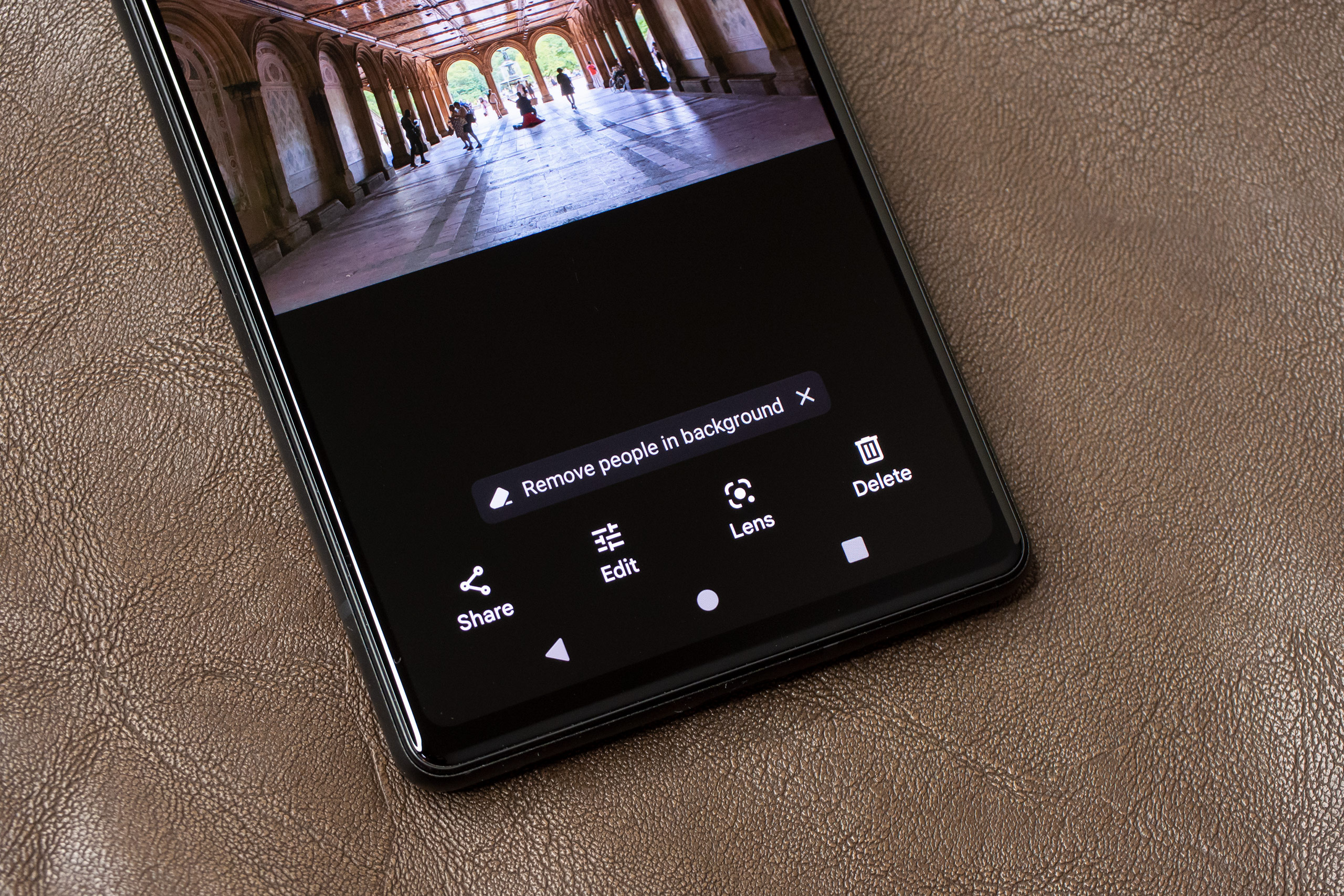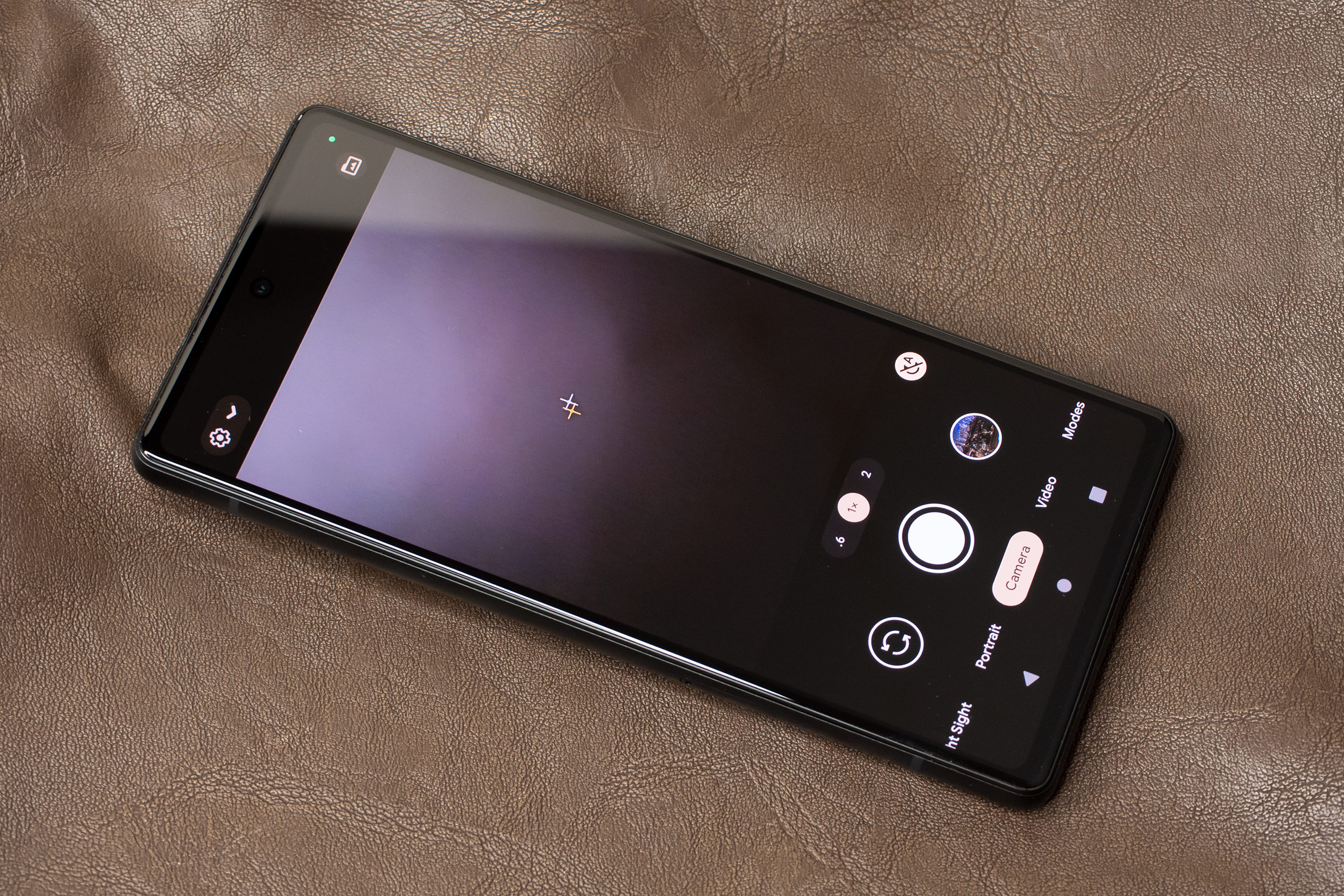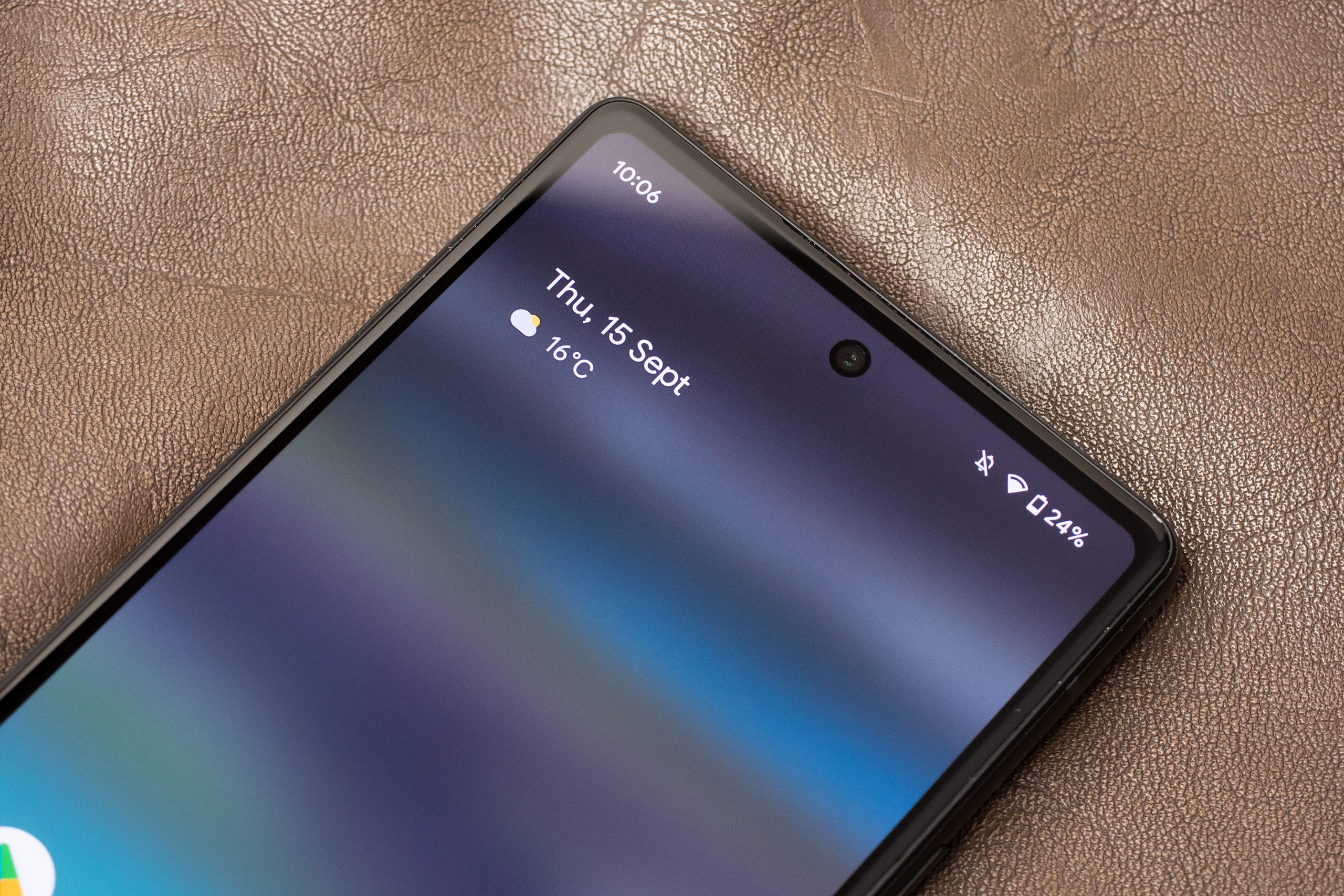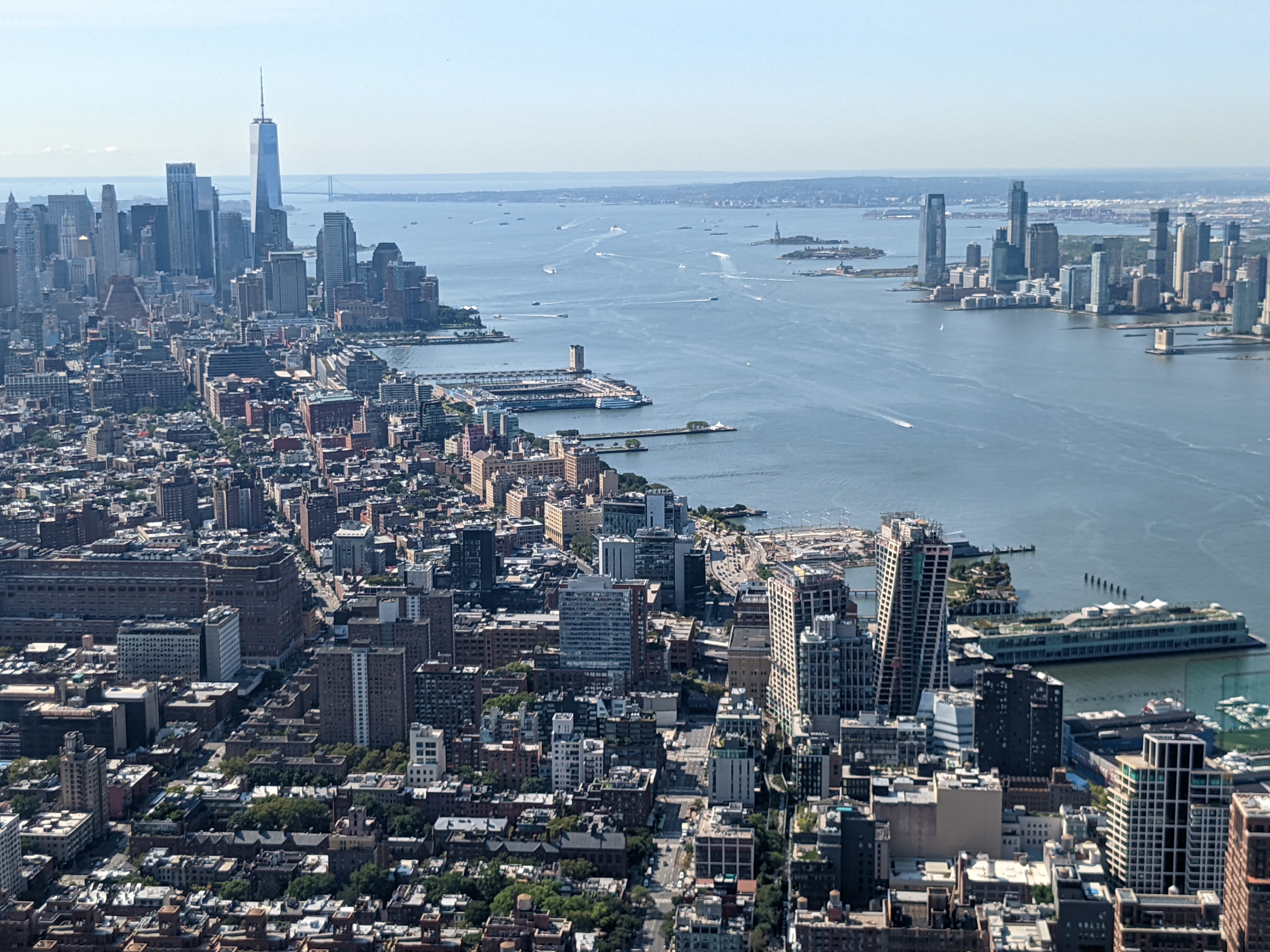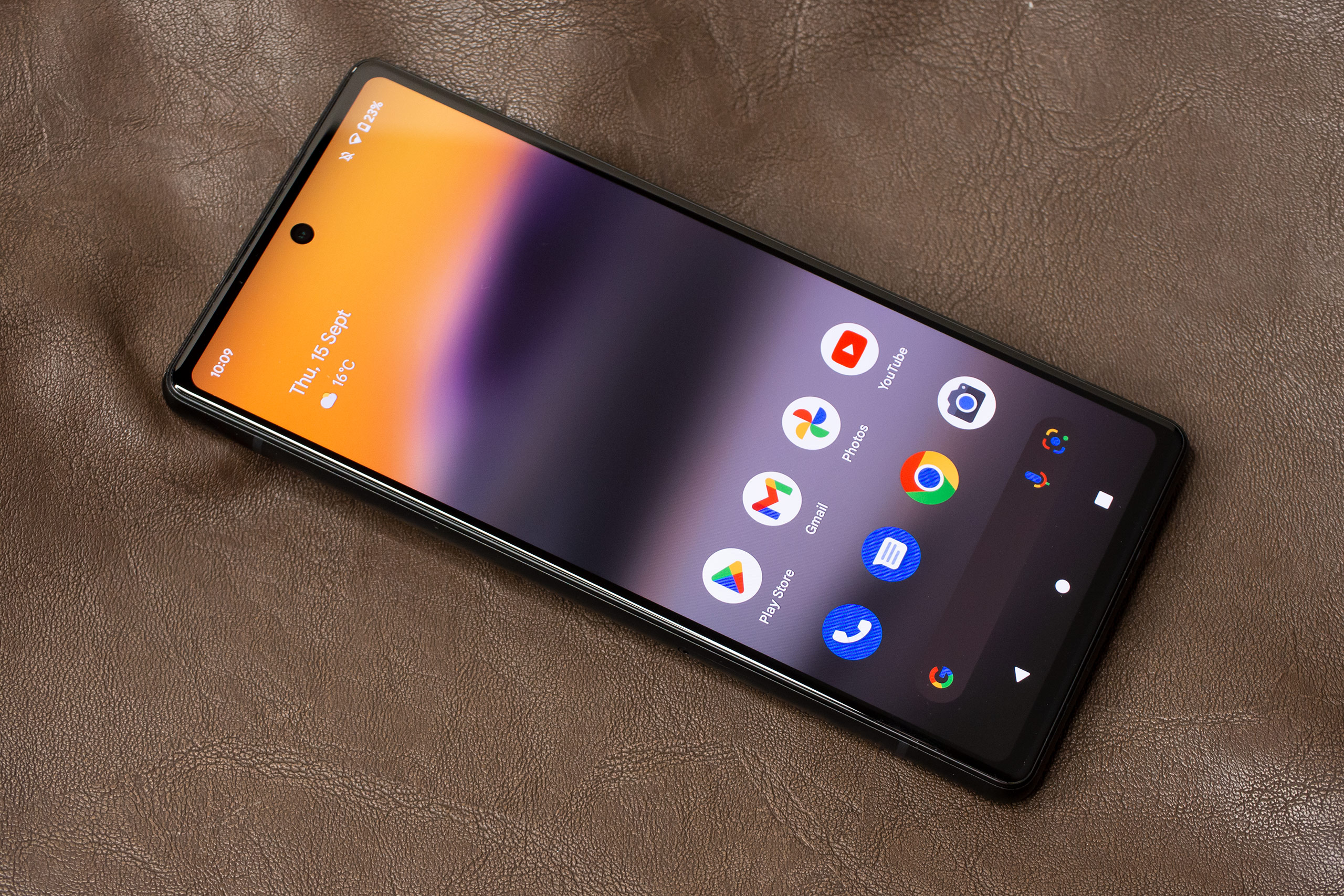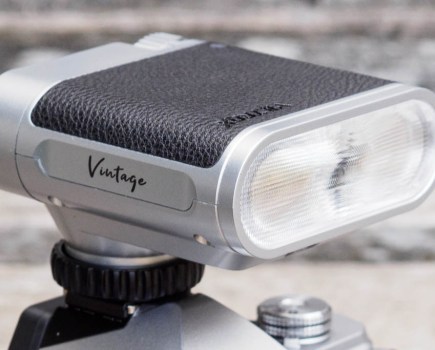Cheap but capable, the Google Pixel 6a is made for those who want a decent phone from a reputable brand, but don’t have much budget. It originally launched alongside the Pixel 6 and Pixel 6 Pro, sitting beneath them in the line-up.
Amateur Photographer verdict
Whilst it may not match flagship phones it delivers excellent colours, exposure and dynamic range at a very affordable price.- Aspects of flagship performance
- Excellent value for money
- Computational photography features
- Compact smartphone
- Missing more advanced features of the 6/6PRO
- Selfie camera only 8MP
- Pixel 6 costs not much more
The Google Pixel 6a has been succeeded first by the Google Pixel 7a and by the Pixel 8a more recently. Google’s latest budget smartphone. Its successor, the Pixel 7a, was announced in May 2023 – however, this wasn’t just an iterative update. Google elected to throw a lot of tech into making the Pixel 7a a substantive upgrade. One of the most significant additions was the inclusion of the same Tensor G2 chipset that powers the mid-range Pixel 7. While this doesn’t greatly affect the baseline performance, it enables a number of clever AI-powered features, like Photo Unblur.
Another was the big resolution bump given to the main camera, going from a 12MP f/1.7 wide to a 64MP f/1.9. As is standard in smartphones, it doesn’t actually use all these pixels in the pictures it creates, but bins a significant number of them to improve the light-gathering ability of its sensor.
All this makes the Pixel 7a a pretty different proposition to the 6a. These days, the Pixel 6a can be picked up for around $180 / £190; while prices do fluctuate, they will not stray far from this mark; making it a real contender as one of the best cheap smartphones you can buy. While no longer sold new by Google, the company is committed to it for software updates until July 2025 (security until 2027), so there is life in it yet.
In this review we focus on the phone’s camera capabilities, assessing its image quality and the various shooting modes it offers. Is it a good enough phone to justify your attention, or did Google cut too many corners? Are you better off biting the bullet and paying for the newer Pixel 7a or 8a? Find out as we get into our Google Pixel 6a review. For other options, check out our guides to the best camera phones and the best budget camera phones.
Features
The Pixel 6a may be bought cheaper than the Pixel 6; with a 12MP ultra-wide camera, as well as a 12MP wide-angle (standard) camera with optical image stabilisation (OIS). The Pixel 6a differs from its higher-end sibling, the Pixel 6, in the standard camera’s specifications: the Pixel 6 has a 48MP camera with a larger sensor, and an additional AI “motion” mode.
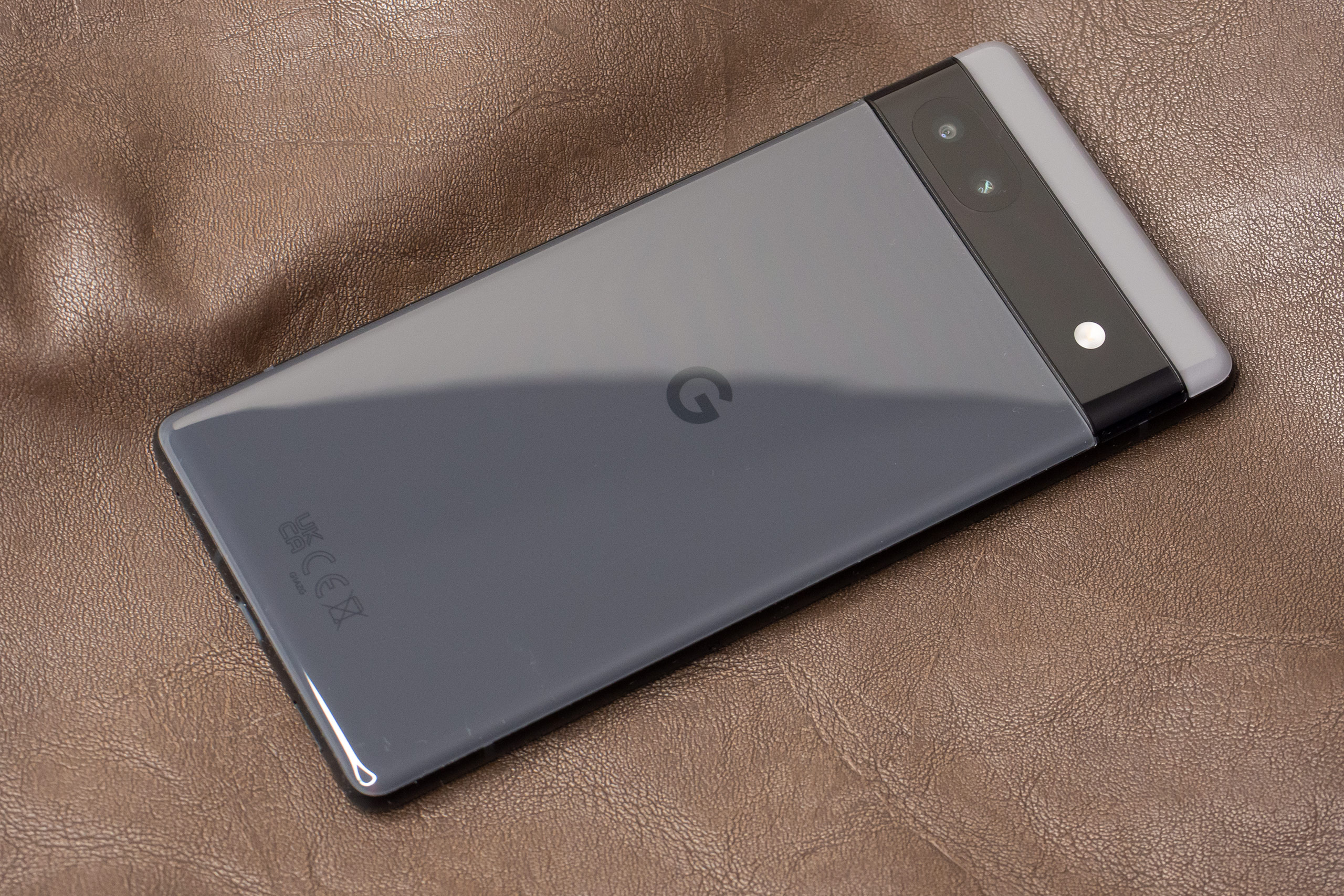
Almost all photography features and processing remain the same for both models, with the Pixel 6a also offering intelligent AI (Artificial Intelligence) features including ‘magic eraser’. This lets you remove objects from the background of photographs. Motion blur (for smooth water shots) is missing, though.
Like the Pixel 6 and 6 Pro, the 6a features Google’s TENSOR processor, as well as an in-screen fingerprint reader, but has 6GB of RAM, rather than the 8GB of the Pixel 6.
There’s a smaller 6.1 inch screen compared to the 6.4 inch screen on the 6, and the 6.71-inch screen on the 6 Pro. The 6 Pro also benefits from a 4x telephoto camera, whilst the 6 and 6a rely on an intelligent/hybrid 2x digital zoom.
There are some differences to be found in the build quality of the 6a, as the rear of the smartphone is made of plastic, compared to Gorilla Glass 6 / Victus on the others. The screen uses Gorilla Glass 3, compared to Victus on the more premium models.
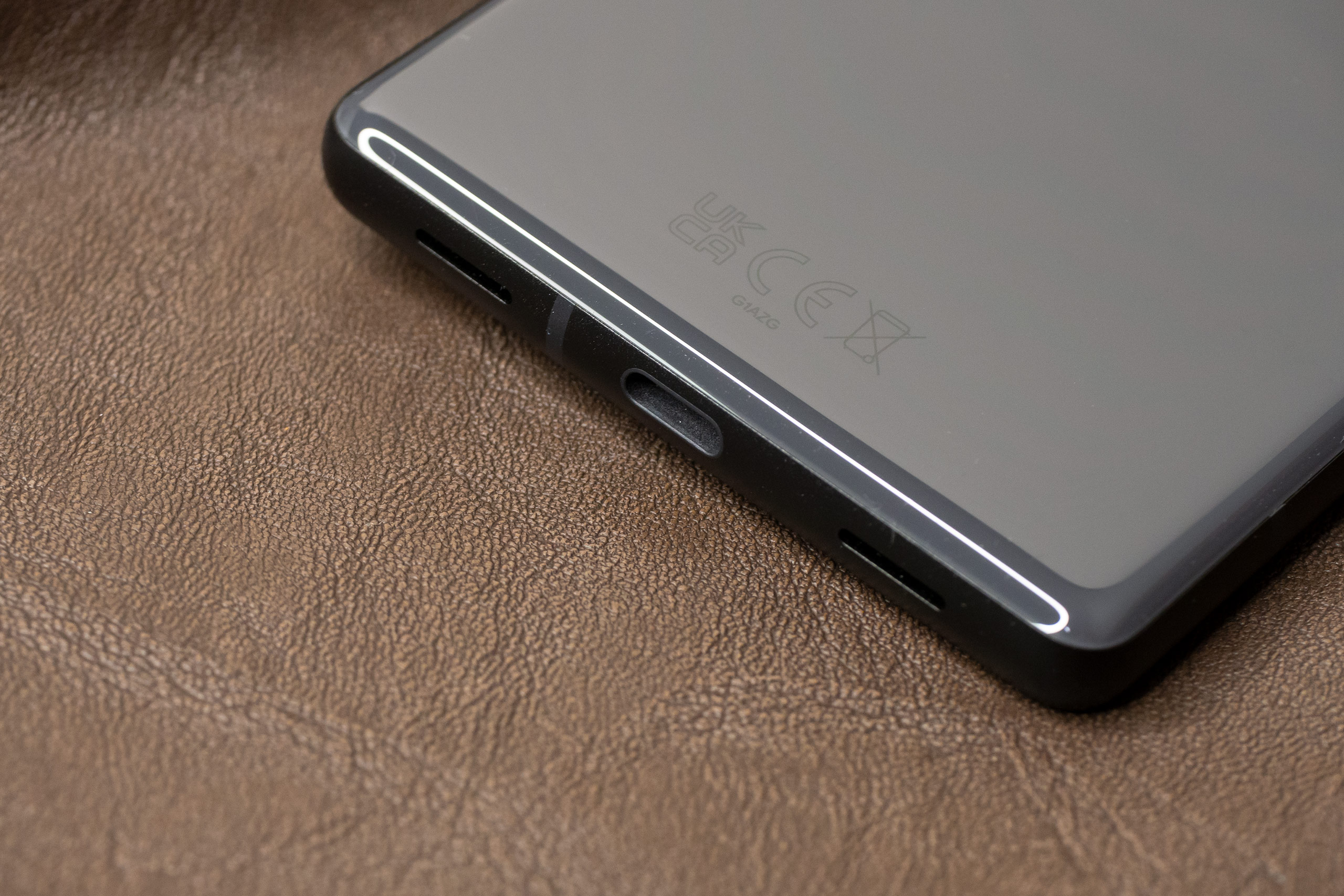
Key features
- 12MP ultra-wide, f/2.2, 17mm equivalent
- 12MP wide, f/1.7, with OIS, 27mm equivalent
- 6.1inch OLED screen, 2400×1080 pixels
- 4410mAh battery
- Android 12 (upgradable to 13)
- 128GB storage, 6GB RAM
- Size 152.2×71.8×8.9mm
- Weight 178g
Handling
The Pixel 6a is extremely compact and lightweight compared to most premium smartphones, which tend to have larger screens. For those who prefer smaller smartphones, then the 6a could be a great choice, although for protection it’s likely you’ll want to protect it with a case. You’ll also find that the phone is extremely slippery, and a case would provide better grip (you don’t get one in the box, nor does the smartphone come with a charger).
The Pixel 6a features the same design camera bar on the rear as the 6 and 6 Pro. However, on the 6a this is much thinner, and the phone is much flatter when placed on a flat surface. You also benefit from IP67 waterproof and dust proof rating, which is impressive for a mid-range phone – the Pixel 6 offers IP68.
Shooting features include a number of mostly automatic modes, and there are no manual or “Pro” modes available, which could frustrate those who want to use these.
The Pixel 6a is also missing some of the more impressive shooting modes that are found on the Pixel 6 and 6 PRO, which includes the “Motion” mode – seriously impressive on the 6/6PRO. It’s a real shame that these aren’t available on the Pixel 6a – see our Google Pixel 6 review to find out why.
However, Magic eraser can be used after taking a photo, to remove background objects such as people (or objects) not desired in the scene. This can work well, as long as you don’t go overboard and try to remove whole sections of the image.
Night Sight – The night mode is called “Night Sight”, and works with both the ultra-wide and standard cameras. On a solid or stable surface, the smartphone will detect a stable platform, and will automatically switch to the astrophotography mode, using a longer exposure to give a much improved night shot, capable of capturing stars in the sky.
A time-lapse can be automatically created when shooting astrophotography, and this will put together a short video clip for you, showing the stars move across the sky for example.
The portrait mode zooms into the image slightly, and gives a blurred background. The phone also benefits from “real-tone” which is designed to give realistic skin tones, and the selfie (front facing) camera on the phone is an 8MP camera built-in to the screen with an f/2 aperture.
There’s also a panorama mode, photo sphere, as well as a “Lens” option that will use the camera to detect items in the scene providing additional information from the internet.
RAW+JPEG can be switched on saving both the standard JPEG and a raw DNG file.
Image quality and performance
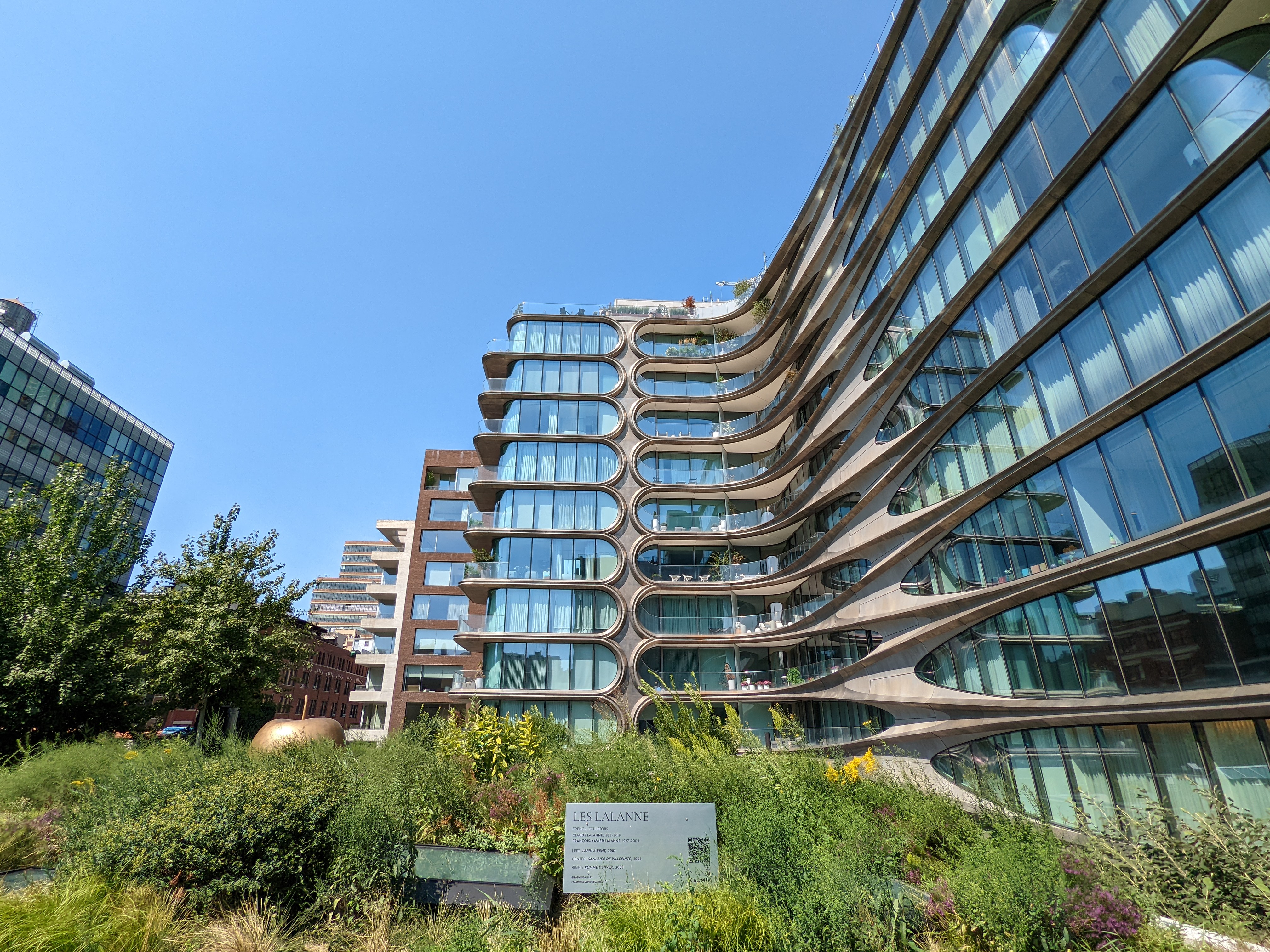
Images from the ultra-wide camera look good, with reasonable amounts of detail. The same ultra-wide camera unit is used in the whole range of Pixel 6 smartphones from the 6a, up to the 6 PRO. Distortion is visible if you have images with straight lines near the edges of the frame, but for the most part this isn’t an issue.
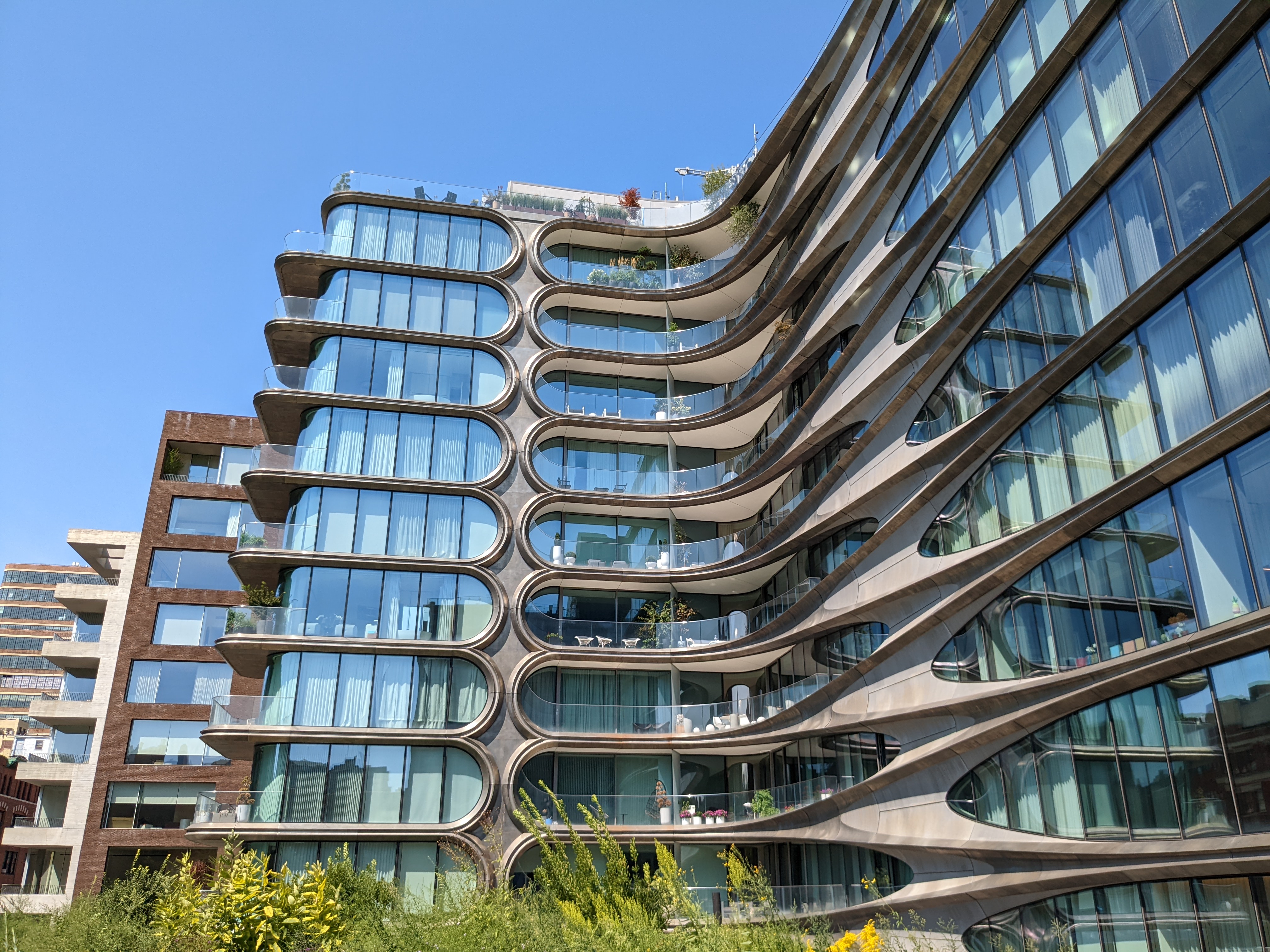
Images from the standard camera’s wide-angle lens give good results, with excellent exposure and dynamic range, thanks to an automatic multi-shot HDR mode that is switched on by default. There are times when images appear too obviously “HDR” and, unfortunately, there are no options to turn this off or tone it down. For most people the results will be extremely pleasing, though.
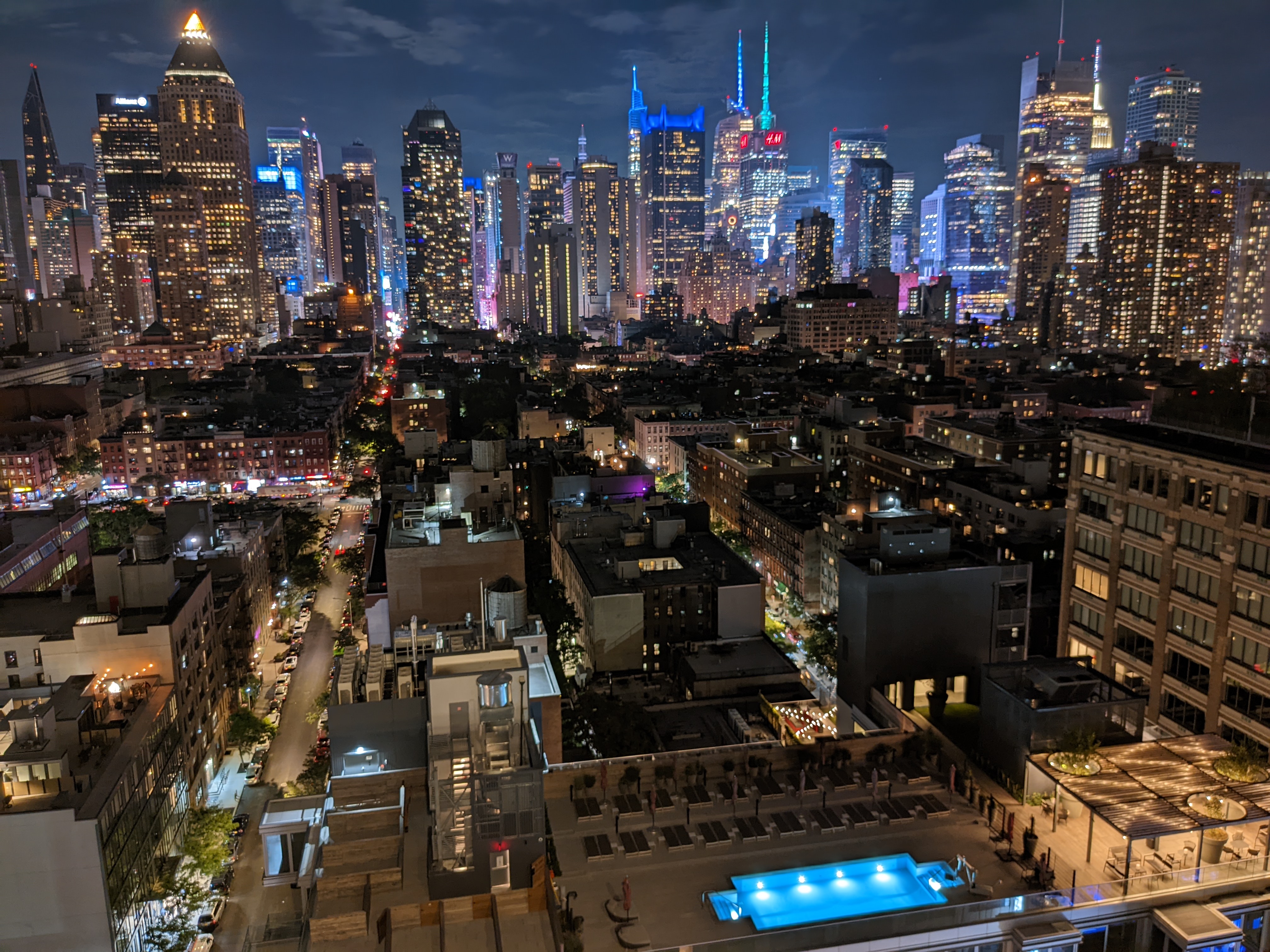
Low-light performance is very good for a mid-range smartphone. However, when comparing images next to the same shots taken with the Pixel 6, it’s clear to see the benefit conferred by the larger sensor. Despite this, it still offers very good low-light performance, and even has an astrophotography mode when the camera detects either a stable surface or tripod.
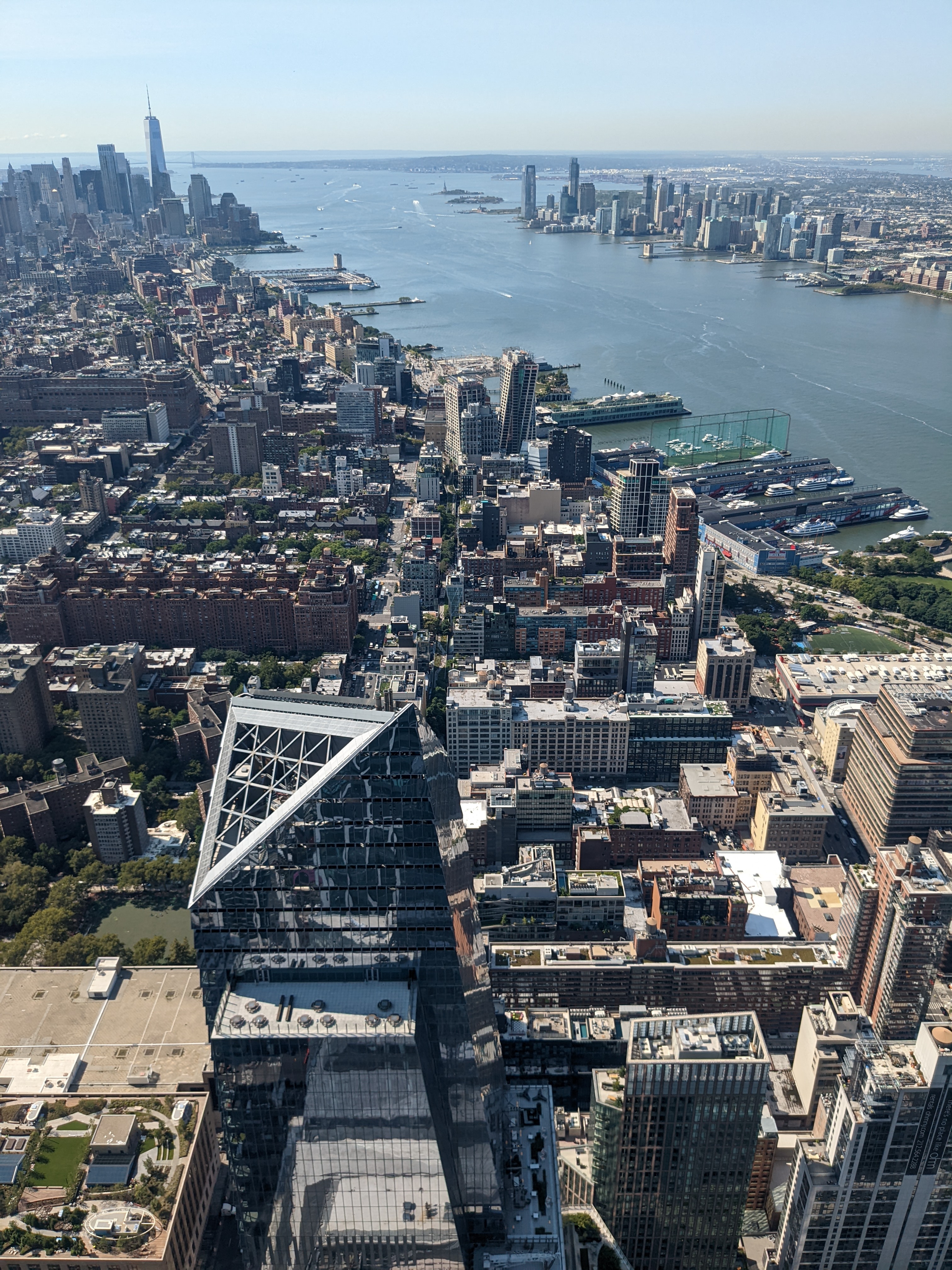
There is an option to shoot at 2x zoom using the main camera. This takes multiple shots, combining them to give an image with improved quality and detail compared to standard digital zoom. The results are slightly better than expected, but do not match the performance of a true telephoto camera, and that lack of detail is lacking is discernible. You can zoom beyond 2x but it’s not recommended as image quality does degrade.
Video recording gives options up to 4K resolution, and up to 60fps recording, with good image stabilisation, as well as good low-light performance. You’ll also find time-lapse, and slow-motion video options, with up to 4x and 8x slow-motion available, albeit at a reduced resolution.
Value for money
There are a number of alternative smartphones in the £300-500 price range, with options including the Samsung Galaxy A54 5G (£365), Honor 70 (£350), and OPPO Reno 8 Pro (£300). However, note that none of these offer a telephoto camera. Also, thanks to the Pixel 6a’s post-launch price drop, they’re all significantly more expensive.
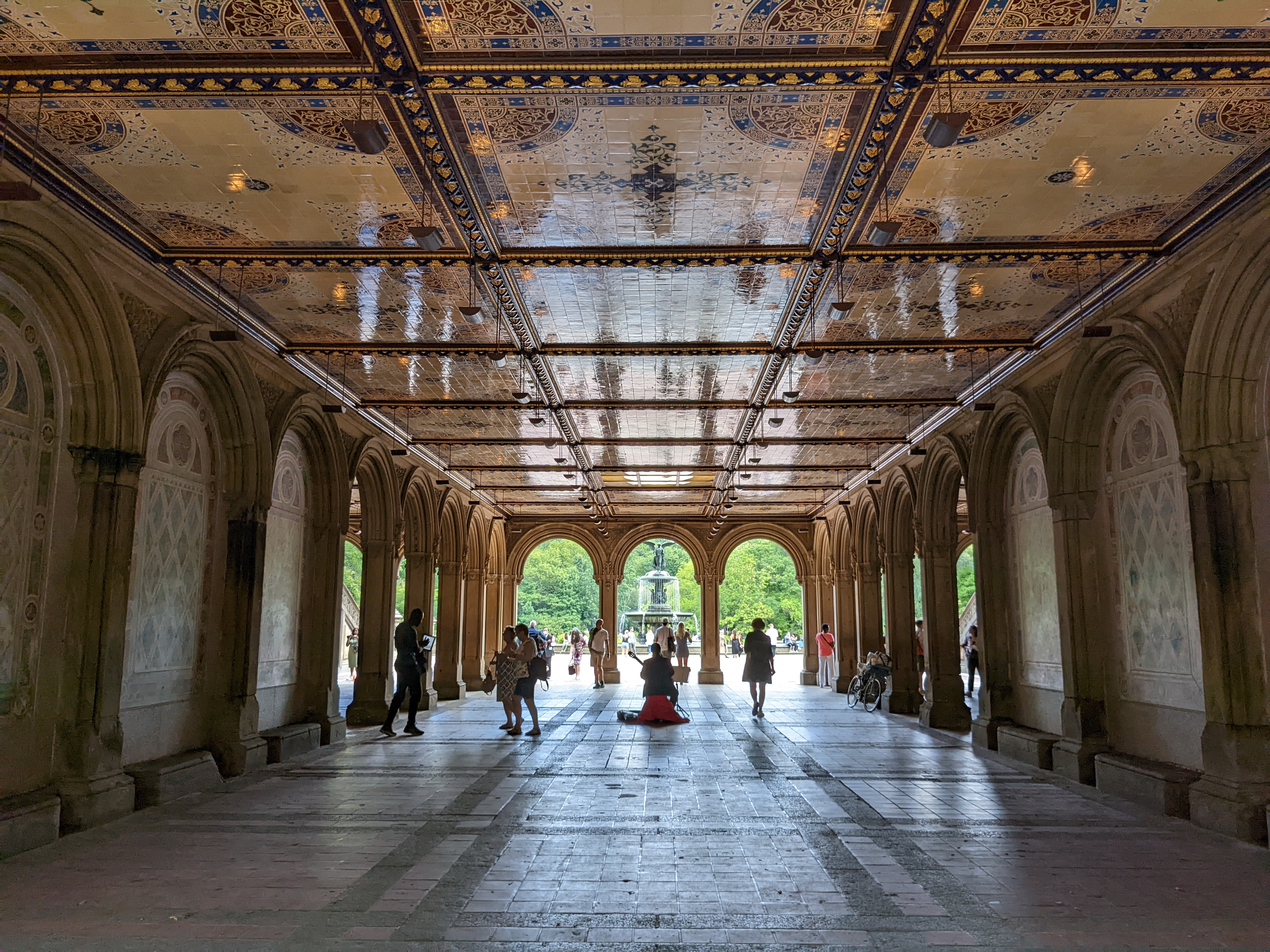
Considering the Pixel 6a offers almost the same camera system as the Pixel 6, with almost the same computational photography, but for more than £100 less, the Pixel 6a offers excellent value for money at current prices. However, if you’re able to find the Pixel 6 on offer then it is exceptional value, as it has been available for around £430-460.
Google Pixel 6a: Verdict
Even though it’s one generation old, the Google Pixel 6a still very much has its place in the line-up. Google’s decision to upscale the 7a and simultaneously drop the price of the 6a is looking like a smart one. Rather than having two near-identikit phones jostling for consumers’ attention, picking between the two is a choice between two genuinely different propositions. And it also makes the Pixel 6a some of the best value for money to be found on the smartphone market right now.
The Google Pixel 6a offers a great dual-camera system with a very good ultra-wide camera, as well as a good to very good wide-angle camera. And, whilst it may not match the flagship smartphones such as the Pixel 6 / Pixel 6 Pro, it comes very close to the performance, with excellent colours, exposure, dynamic range and detail.
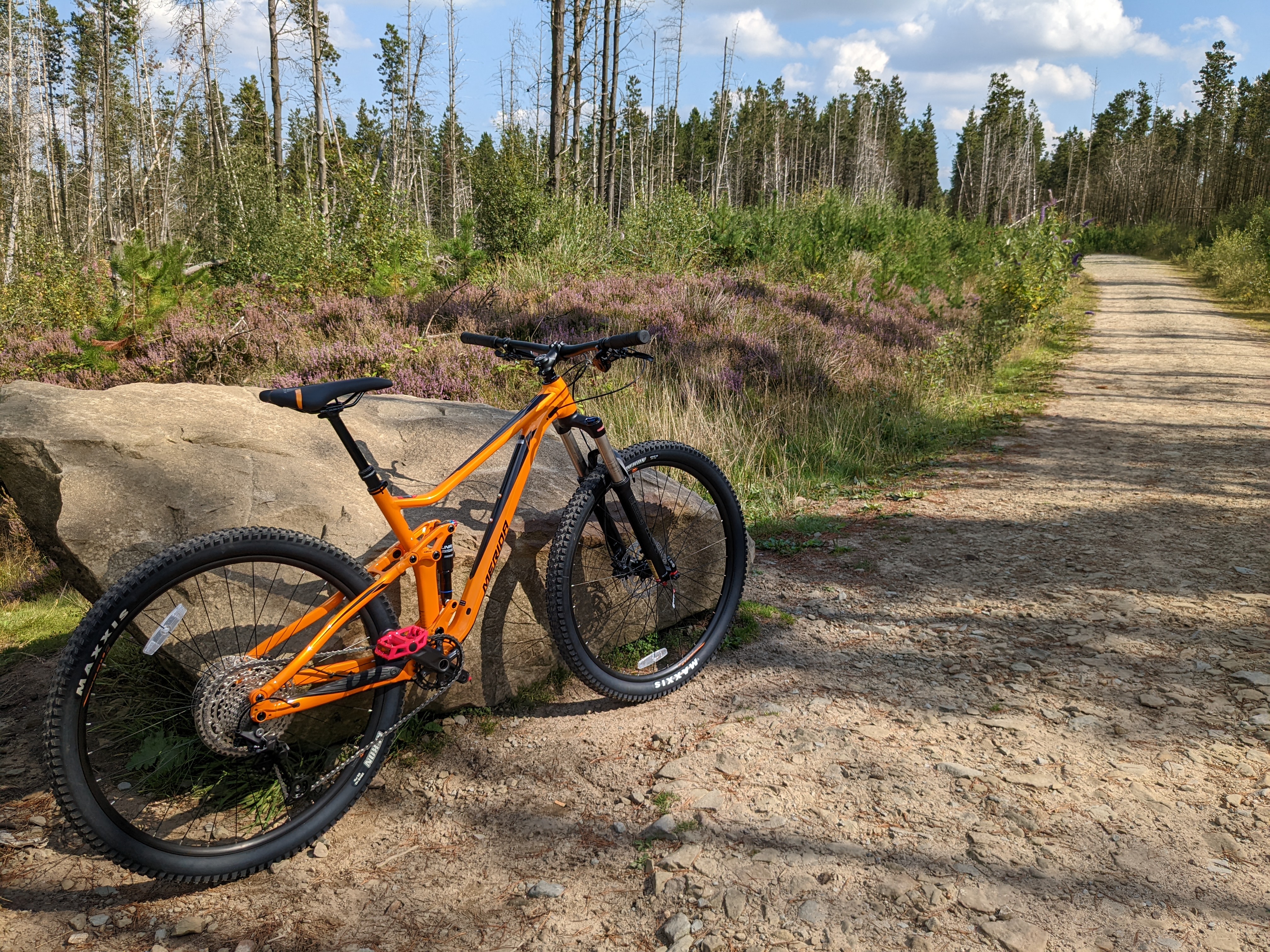
Realistically, for a smartphone camera system that’s radically better than this, you will need to spend a lot more money. The Pixel 6a still does an excellent job of punching above its weight. A year and a successor since its launch does not equate to a decrepit, outdated smartphone in this case. The Pixel 6a also benefits from the impressive computational photography features such as Night sight, magic eraser, and astrophotography: great features to have, and difficult to beat.
There are a few things missing, of course. The main one is a telephoto camera; the Pixel 6a sports a reasonable enough 2x digital zoom, but this is nowhere at all when compared to smartphones with dedicated optical tele lenses. There’s no dedicated macro mode either; while you can fudge a decent-ish close-up with the 2x zoom, once again, it’s no match for phones with dedicated macro lenses. Neither of these are things we’d particularly expect to see on a camera at this price, and if you want them badly, you’re looking at something like the Pixel 7.
Ultimately, the price drop of the Pixel 6a means it’s one of the best-value smartphones you can buy right now, and as long as you’re comfortable with what it can and can’t do, you can be confident you’re getting a great phone at an outrageously good price.

For more options have a look at the best smartphones for photography, or have a look at the best budget camera phones.
Related reading:
- Google Pixel 7a Review: king of budget phone cameras?
- Google Pixel 7 review – Mid-range phone shines
- Google Pixel 8 Review – AI for the masses
- Google Pixel 8 Pro Review – Great Hardware meets AI Magic
Follow AP on Facebook, Twitter, Instagram, YouTube and TikTok.

